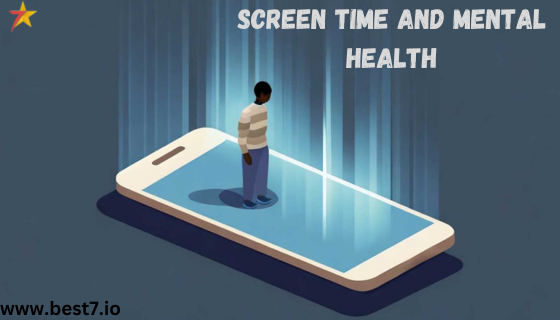
In today’s contemporary society, the increasing prominence of digital devices has significantly amplified the amount of time that children spend on screens. While digital devices can facilitate learning experiences and foster interactivity, they also raise major concerns regarding the impact on children’s well-being.
In this context, the association between the time spent on digital screens and mental health has become one of the foremost concerns of parents, educators, and health experts. With references to the initial studies and researched cases, it is clear that conclusions have been made and projections are being developed based on the research data.
Nevertheless, these findings will also continue to be contrasted with the emerging events to support the parents in their efforts to foster healthy children and maintain balanced screen time.
Screen Time and Emotional Health in Children
The emotional health of children appears to be one of the prominent factors that can be affected by their screen time. As such, it was shown that the increased duration of on-screen time is associated with higher risks of emotional distress among children.
Precisely, the American Academy of Pediatrics reported a study that stated that children who spend over three hours with screens are 30% more likely to suffer from symptoms of anxiety and depression. This suggests a recurring need to maintain a proportionate amount of time spent by children on screens.
Future Projections: Rising Screen Time Trends
As for future projections, it is estimated that 70% of children under 12 will spend four hours or more on screens in 2025 if the current trend continues. The likelihood of such a development is associated with the perpetuated exacerbation of existing concerns and the rising level of anxiety.
Consequently, this reality will necessitate the perpetuation of existing and the emergence of new systems to address these problems.
Attention Deficit and the Impact of Screen Overexposure
Overexposure to screens is known to cause shorter attention and concentration spans among frequent young users. This effect is particularly prevalent in younger children whose brains are not yet fully developed.
Mood Swings and Irritability as Screen Time Effects
As kids are often primary users of digital devices, digital overexposure is likely to result in sudden mood swings, aggression, and irritation among children.
Sleep Disorders and the Disruptive Impact of Blue Light
Blue light, emitted by screens, disrupts the production of melatonin, the body’s natural sleep inductor. This disrupts children’s sleep patterns and impacts their mental health, with broader effects on immune health.
Social Reclusiveness: Limiting Real-Life Interactions
Most screen time consumed by children reduces face-to-face interactions, which can be detrimental to social development. Prolonged use of headphones may weaken eardrums early, increasing the risk of hearing issues. Communication-related disorders are also likely to rise.
Behavioral Changes: Hypoactivity and Impulsivity
After prolonged screen use, children may tend to become impulsive and overly aggressive, showing hypoactivity and behavioral changes as they struggle to transition between digital and real-life interactions.
Reduced Empathy and Emotional Intelligence
Limited socialization due to screen overuse may restrict children’s exposure to others’ situations, ultimately impacting emotional intelligence and empathy.
Effective Parenting Techniques for Screen Time Management
It is estimated that by 2028, about 60% of parents will manage their children’s screen time, likely through digital management tools. A range of techniques can be applied to promote mental health in children:
- Setting Time Limits: Restrict screen use to a set number of hours daily or weekly to encourage discipline.
- Screen-Free Times: Establish rules for no screens before or after bedtime and meals.
- Encouraging Outdoor Activities: Engage children in outdoor play and reading as alternatives to screen time.
- Supervising Content and Interaction: Parents should be aware of the content their children consume and engage in discussions about their favorite apps to promote responsible screen time.
Screen Addiction: A Growing Concern for the Future
Screen addiction has become one of the main concerns regarding children’s mental wellness. Overuse of social media and games may foster dependence and harm the health of children and adolescents. A study by Common Sense Media showed that 50% of children aged 8-12 present signs of device dependence. This trend underscores the importance of setting screen time limits to prevent addiction.
Recognizing Symptoms of Screen Addiction
Symptoms of screen addiction in children may include:
- Fixation on Screen Use: Difficulty disengaging from screens for other activities.
- Withdrawal Symptoms: Anxiety or irritability when devices are taken away.
- Prioritizing Screens Over Responsibilities: Choosing screen time over homework, chores, or family time.
- Reduced Interest in Other Activities: Showing less interest in hobbies and outdoor activities.
Strategies for Balanced Digital Engagement in Children
Balanced screen time allows children to enjoy technology’s benefits without risking their mental health. Establishing clear guidelines and promoting activities that support social-emotional health can help children develop a healthy relationship with digital devices. Schools are increasingly advocating for screen time awareness and responsible usage, with projections suggesting that by 2030, 80% of schools will educate students on responsible screen time management.












